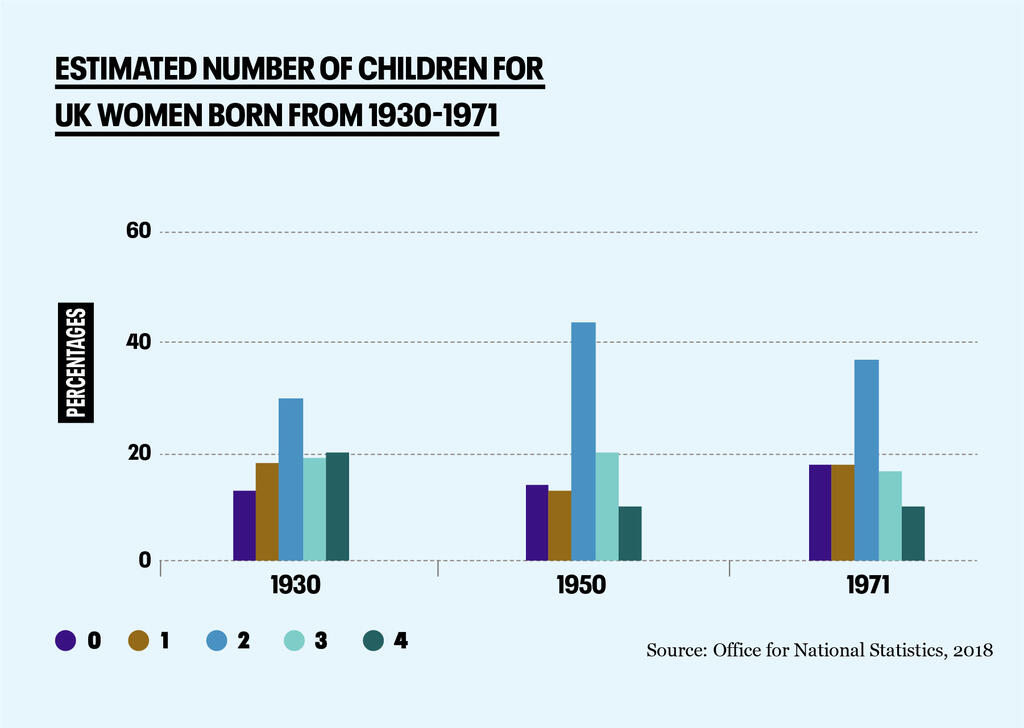
Population Growth In The UK
The United Kingdom is a densely-populated country, and its natural environment and quality of life are paying the price.
With no end to population growth in sight, pressure on wildlife, housing, public services and resources will continue to grow, while meeting our climate change targets becomes more difficult.
The UK population is growing
The population size of the United Kingdom is now more than 67 million people, which is the biggest it has ever been. In 1950, the population was 50 million: the Office for National Statistics (ONS) projects that it will pass 70 million in 2026 and reach more than 73m by 2036. The growth rate in England and Wales in 2022 was the highest since 1962. Despite its relatively small land area, the UK is on track to be the largest nation in Europe by the second half of this century.
Drivers of growth
According to the ONS, since 1955 (except in 1976, and 2020, due to the covid pandemic) the number of births in the UK has been higher than the number of deaths.
The average number of children per woman (total fertility rate) has been declining over generations, with a sharper reduction since 2012 and now stands at 1.49. However, it is not projected to continue to decline and ONS expects that it will grow slightly over coming decades.

Family sizes have decreased in the UK over generations. Two-child families remain the most common but there are now fewer larger families. One reason is that people now start their families later in life. Women born in 1950 had on average 1.5 children each by the age of 30. That had decreased to one child for women born in 1975 and now stands at 0.8 for women born in 1993.
Net migration has been the main driver of population change since the 1990s. In 2022, it stood at 672,000. ONS currently projects that, based on current trends, net migration could account for 90% of population increase in the UK over the next decade.
The covid pandemic and Brexit have made it far more difficult to predict future migration, however. ONS acknowledges that actual numbers could be significantly higher or lower than they currently estimate to be most likely.
Our consumption is unsustainable
The average UK resident produces 11 times more CO2 consumption emissions per year than a person in Nigeria and according to the Global Footprint Network, if everyone on Earth lived like the average Briton, we would need three planets to meet humanity’s natural resource demand without destroying nature.
More than two-thirds of the land needed to produce the UK’s food and animal feed is abroad: 64% of the related greenhouse gases are emitted on foreign soil.
In 2012, it was calculated that the south-east of England ranked 161st out of 180 areas globally in terms of its ability to deliver sufficient water to its population. Since then, the region’s population has grown significantly.

Our environment and quality of life are paying the price
The UK is considered one of the most “nature-depleted” countries in the world, with more than one in seven species at risk of extinction and more than half in decline. In 2020, the first Red List of UK mammals shows that a quarter of native mammal species now face “imminent” extinction due to relentless pressure from habitat destruction.

The government aims to build 300,000 new houses per year to meet rising demand, with some experts saying more are needed. Proposals from some political parties now include building on green belt land.
Healthcare funding has not kept up with population growth and mortality rates from preventable and treatable causes are higher in the UK than in other European high-income countries.
Population density in Europe is just 34 people/sq km. At 434 people/sq km, England is the most overcrowded large nation in Europe.
our population is changing
The UK’s relatively low birth rate is a positive, helping us to progress more quickly to a sustainable population level. It nevertheless brings challenges, including a greater proportion of older people who are no longer economically productive but require health and care services, and depopulation in some areas.
Between the censuses of 2011 and 2021, the proportion of people aged over 65 in England and Wales increased 16.4% to 18.6% and by mid-2045, the number of people over 85 years is expected to be just over three million, double the number in 2020. They will still, however, constitute less than one-in-twenty of the population.
A low birth rate and ageing population do represent a challenge, but it is one we are prepared for and that a high-income country such as the UK is equipped to deal with. Population Matters’ 2021 report, Silver Linings not Silver Burdens examines the issue and identifies multiple solutions.
Solutions
We believe that all countries, including the UK, should have policies intended to ensure a sustainable population. By “sustainable population”, we mean a level and demographic distribution of population that provides the best quality of life for their citizens, protects their natural environment, ensures the wellbeing of future generations and, just as importantly, has positive effects beyond their borders.
That level is affected by many factors, including, for instance, the age profile within the population, the level and distribution of consumption in a country, and the international effects of its migration policies.
The critical present and future impact of population growth and population change require a coordinated and integrated policy approach by government. That depends on a sound evidence-base, that accounts for all of the relevant factors and consequences. Population Matters is calling on politicians in the UK to back an independent demographic authority which can provide objective advice to policymakers, parliament and the public, free of political posturing.
The present and future impact of population growth on the UK affects almost every aspect of national life and the work of government. It therefore requires a coordinated and integrated policy approach. The UK Government and devolved administrations in Scotland, Northern Ireland and Wales must introduce, through legislation, a UK-wide Sustainable Population Policy that is compassionate and meets legal and moral responsibilities for asylum seekers and refugees.
Read our latest news about UK population
You can find all the latest updates on this topic at the link below.


